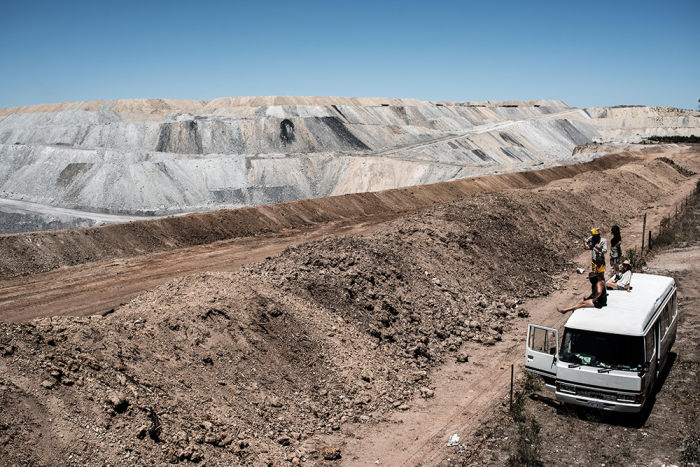In spite of these concerns, the country is facing a massive expansion of not only coal but coal seam gas (CSG), facilitated by the state and federal governments. In many cases this expansion has been met with community resentment and opposition, particularly in communities that face the direct impacts. The struggle between Dart energy and Santos which took place earlier this year in St Peters is reflective of a wider struggle across NSW and Queensland.
Recently, students from ASEN, the Australian Student Environment Network, set out to explore and learn more about this growing resistance to coal and CSG. Numerous Mining the Truth road trips have taken place nationally. We were fortunate to meet some inspiring people in NSW along the way and learn about the brazen ways the mining companies tend to operate. By visiting these communities we connected with many environmental, social, health and community issues.
We saw the leaking of sulphur-reducing bacteria and methane causing “dead zones” within the Piliga State Forest. Operations within this area endanger the Great Artesian Basin which is drilled through in order to access the deep coal seams. Damage to this vital aquifer could have untold effects on the environment, as well as arable farming land. The conflict between coal and gas mining on the one hand and agriculture on the other was a recurring theme of the trip. We learnt of a coal train derailment in Boggabri expected to cost cotton and grain farmers approximately $150 million.
These open-top trains transport coal from mines to the Newcastle Port, the largest coal port in the world. Increasing concerns have been raised over the fine particulate matter in coal which is found, in the vicinity of mines and of railway lines where coal is hauled in open-topped trains, at levels significantly exceeding World Health Organisation standards. These fine particles have been linked with respiratory tract infections. In fact, Newcastle has the highest rate of asthma in children across NSW. However, in the face of such findings and strong links between coal and public health issues, the industry continues with its development. NSW is facing a huge expansion in coal and gas mining and Port Waratah Coal Service is seeking approval to expand and double its export capacity.
In light of all these problems, not to mention the contribution any coal and CSG developments make towards climate change, the expansion of coal and gas mining seems absurdly reckless. Recent protests have resulted in police hauling away an elderly lady blockading for the community in Fullerton Cove against Dart Energy, the same CSG company that was kicked out of St Peters. When the government and industry are equally implicit in this kind of behaviour the only course of action we are left with is to organise within our own communities and stand in solidarity with one another.
The issue of coal is crucial, and close to home. Environment networks such as ASEN urge community members to recognise this issue and fight for a greener, coal-free Australia.





